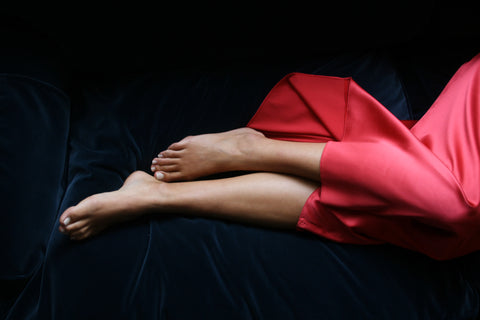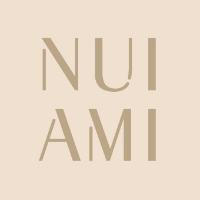
More than ever we are learning how important sleep is to our wellbeing and we are starting to understand how important it is to make sleep a priority
.
Two thirds of us are not getting enough sleep on weeknights. If you're sleeping for less than seven hours a night you’re doing yourself a disservice as grave as that of smoking or drinking to excess. Getting enough sleep can sometimes feel impossible to achieve – especially given the digital distractions and demands of modern times. Midnight is no longer ‘mid night’. For many of us, midnight is usually the time when we consider checking our email or social media one last time.
Sleep is one of the most important but least understood aspects of our life. Compared to the other basic drivers in life—eating, drinking, and reproducing—the purpose of sleep remains elusive.
However are now living in a golden age of sleep science and two International bestsellers in particular have taken the global sleep crisis mainstream and explain why we need to start prioritizing our sleep as a matter of urgency.
Professor Matthew Walker’s International bestseller Why We Sleep and Arianna Huffington’s The Sleep Revolution.


Professor Matthew Walker is a Director of UC Berkeley’s Sleep and Neuroimaging Lab—and he explains how we can harness its transformative power of sleep to change our lives for the better. He has discovered through his scientific breakthroughs that within the brain, sleep enriches our ability to learn, memorize, and make logical decisions. It recalibrates our emotions, restocks our immune system, fine-tunes our metabolism, and regulates our appetite. As many of us suspected dreaming subdues painful memories and creates a virtual world in which the brain processes past and present knowledge to inspire creativity.
Walker answers important questions about sleep: how do caffeine and alcohol affect sleep? What really happens during REM sleep? Why do our sleep patterns change across a lifetime? How do common sleep aids affect us and can they do long-term damage? Walker explains how we can harness sleep to improve learning, mood, and energy levels; regulate hormones; prevent cancer, Alzheimer’s, and diabetes; slow the effects of aging; increase longevity; enhance the education and lifespan of our children, and boost the efficiency, success, and productivity of our businesses.
In terms of our natural sleeping tendencies, people can be divided into two broad groups, or “chronotypes”: morning larks and night owls. Each group operates along different circadian rhythm *, and there is pretty much nothing owls can do to become larks – which is tough luck, because work and school scheduling overwhelmingly favour early risers. Owls are often forced, he writes, “to burn the proverbial candle at both ends. Greater ill health caused by a lack of sleep therefore befalls owls, including higher rates of depression, anxiety, diabetes, cancer, heart attack and stroke.” Compounding the problem, we do not then sleep any longer into the morning hours to accommodate these later sleep-onset times. Our circadian biology, and the insatiable early-morning demands of a post-industrial way of life, denies us the sleep we vitally need. And low level exhaustion becomes an accepted norm.
*Circadian rhythms are physical, mental, and behavioral changes that follow a daily cycle. They respond primarily to light and darkness in an organism's environment. Sleeping at night and being awake during the day is an example of a light-related circadian rhythm. The study of circadian rhythms is called chronobiology.
In a more personal exploration of sleep co-founder and editor in chief of The Huffington Post Arianna Huffington also shows how our cultural dismissal of sleep as time wasted compromises our health and our decision-making and undermines our work lives, our personal lives and even our sex lives.
In The Sleep Revolution, Arianna explores what happens while we sleep and dream. She challenges the sleeping pill industry, and all the ways our addiction to modern technology disrupts our sleep. She also offers a range of recommendations and tips from leading scientists on how we can get better and more restorative sleep, and harness its incredible power and reveals the vital role sleep plays in our every waking moment and every aspect of our health--from weight gain, diabetes, and heart disease to cancer and Alzheimer’s.
So the message is clear, if you want to be cleverer, more attractive, slimmer, happier, healthier and of warding off cancer – neuroscience has discovered a miracle drug - a good night’s sleep.
In order to improve our Sleep Hygiene, a new term for our age... certain pratices need to become daily habits.
- MAKE TIME. Follow a schedule of the same bedtime and wakeup time, even at weekends. This helps to regulate your body's clock and could help you fall asleep and stay asleep for the night.
- RITUAL. Create and practice your own bedtime rituals. A relaxing, routine before bedtime away from bright lights helps separate your sleep time from activities that can cause excitement, stress or anxiety. I use Neal’s Yard Esta Bamboo diffuser with their night-time essence, it sends a soporific mist into the bedroom and like Pavlov’s dog, when I smell this scent, I immediately feel sleepy.
- NO NAPS FOR SOME. For some, but not me, if you have trouble sleeping, avoid naps, especially in the afternoon.Power napping may help you get through the day, but if you find that you can't fall asleep at bedtime, eliminating even short catnaps may help.
- SANCTUARY. Make your bedroom a sleep sanctuary. Your bedroom should be cool – between 60 and 67 degrees. Ideally free from any noise that can disturb your sleep and from any light, this will help strengthen your natural circadian rhythm. If noise and light are a problem try bio-ears for the most comfortable earplugs and a silk eye-mask to shut out light and lock moisture in for added anti-ageing benefits.
- THE BEST BED POSSIBLE. Sleep on a comfortable mattress and pillows. Make sure your mattress is comfortable and supportive. The one you have been using for years may have exceeded its life expectancy – about 9 or 10 years for most good quality mattresses. Have comfortable pillows and have the best linens you can afford, changing your sheets once a week will also help combat dust mites and other allergy triggers.
- FOOD AND DRINK. Avoid alcohol, cigarettes, and heavy meals in the evening. Alcohol, cigarettes and caffeine disrupt sleep. Eating big or spicy meals can cause discomfort from indigestion that can make it hard to sleep and if you can, avoid eating large meals for two to three hours before bedtime. Certain foods such a kiwis, cherries and oats contain melatonin, while foods rich in vitamin B6 or the amino acid tryptophan help your body make melatonin, so it’s wise to include both in evening meals. Good sources include sunflower seeds, pistachios, tuna, wild salmon, avocado, chicken, cooked spinach, bananas and prunes. Magnesium is another nutrient vital for sleep and is found in almonds, leafy greens, bananas and fish.
- WIND DOWN. Your body needs time to shift into sleep mode, so spend the last hour before bed doing a calming activity such as reading. For some people, using an electronic device such as a laptop can make it hard to fall asleep, because the particular type of light emanating from the screens of these devices is activating to the brain. If you have trouble sleeping, avoid electronics before bed or in the middle of the night.
- DON’T STRESS. If you can't sleep, go into another room and do something relaxing until you feel tired. It is best to take work materials, computers and televisions out of the sleeping environment. Use your bed only for sleep and sex to strengthen the association between bed and sleep. If you associate a particular activity or item with anxiety about sleeping, omit it from your bedtime routine.
- SEEK HELP. If you’re still having trouble sleeping, don’t hesitate to speak with your doctor or to find a sleep professional. You may also benefit from recording your sleep in a Sleep Diary to help you better evaluate common patterns or issues you may see with your sleep or sleeping habits.
- SLEEPWEAR. Choosing the right sleepwear is essential and is our passion at Nui Ami. Whether you are a hot or cold sleeper, a pyjama wear or forever a nightie women or someone who loves to have a bit of support in their nightwear, sleeping in natural fabrics is essential as they are certainly the best for their ant-wicking properties and overall comfort during your seven to eight hours of perfect rest.
Sleep Beautifully
Sanjit x

Leave a comment